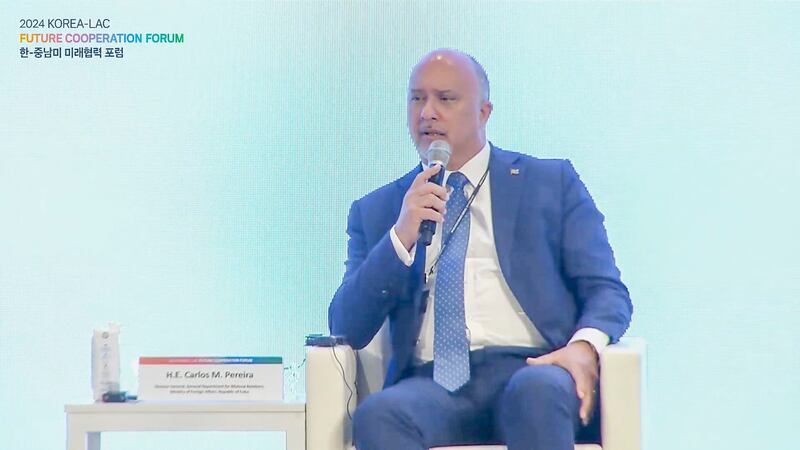South Korea and Cuba announced on Wednesday that they have finalized plans to open embassies in Havana and Seoul, and will send diplomats within the week.
The development came as Cuba sent its first delegation to South Korea since the two countries agreed to normalize relations in February, a decision that took North Korea by surprise.
North Korea has traditionally regarded Cuba as one of its closest “socialist brethren,” with state media often characterizing the Caribbean island as a success story despite the challenges it faces under the U.S.-enforced trade embargo.
The delegation, led by Carlos Miguel Pereira, director general of bilateral affairs at the Cuban foreign ministry, visited South Korea’s Ministry of Foreign Affairs and held discussions with the Korean side led by Deputy Minister for Political Affairs Chung Byung-won.
During Wednesday’s meeting, Seoul and Havana agreed to cooperate on several different international and regional situations and to set up embassies as soon as possible, Lim Soo-suk, a South Korean foreign ministry spokesperson, told a news briefing.

Deputy Minister Chung elaborated, saying that a temporary office would be opened within the first half of this year, with diplomatic staff to be dispatched to Havana later this week.
Director General Pereira, meanwhile, said that Cuban personnel began working in South Korea last month, and will open the Cuban Embassy soon.
Related Stories
[ N Korea reduces Cuba coverage as its ally enhances ties with SouthOpens in new window ]
[ North Koreans shocked as Cuba establishes ties with South KoreaOpens in new window ]
Mario Alzugaray Rodriguez, deputy head of mission of the Cuban Embassy in China, visited South Korea in May to discuss the embassy opening with the South Korea’s Ministry of Foreign Affairs. He was also part of the delegation and had the title “acting ambassador to South Korea.”
Chung reported prior to the meeting that discussions would also include inter-Korean relations.
Checkmate?
Cuba’s sudden overtures to South Korea should not necessarily be taken at face value because Havana still remains close to Russia, David Maxwell, vice president for the Center of Asia Pacific Strategy, told RFA Korean.
Maxwell noted that at the same time as the meeting in Seoul, four Russian warships, including a nuclear-powered submarine, had entered Havana harbor in Cuba.
“I worry about political warfare. Is Cuba really breaking from the axis of dictators?” Maxwell said. “What if Cuban relations with South Korea will be exploited over time to receive South Korean exports, particularly of high tech and dual use goods, that could then be transhipped to North Korea?”
Maxwell likened the geopolitical situation between North and South Korea to that of opponents in the Korean stone-capturing game baduk , known as go in Japan and weiqi in China.
“It appears that South Korea has captured a North Korean stone,” he said. ”But does this ‘diplomatic terrority’ really benefit South Korea in the long run? Only time will tell.”
But the establishment of relations between Havana and Seoul will not have any effects on inter-Korean relations, the Heritage Foundation’s Bruce Klingner told RFA.
“Cuba did not provide assistance to North Korea nor had significant trade with Pyongyang,” he said. “While Havana's shift in relations between the Koreas was an embarrassment for Pyongyang as a loss of a socialist compatriot, the North Korean populace may not have been informed of the event.”
Translated by Leejin J. Chung. Edited by Eugene Whong and Malcolm Foster.
